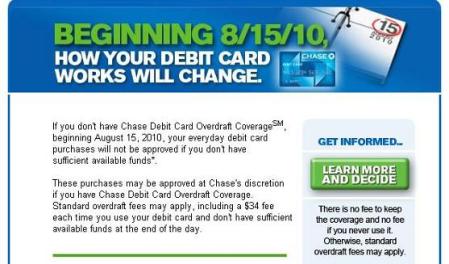The Overdraft Scam
I’m sure almost all of you have had this experience: you have, let’s say, $500.00 in your bank account. Then you mis-scheduled your payments where the following three checks come in: $470.00, $40.00, and $22.00.
This is what always happened: the bank would pay the largest check first leaving you with only a $30.00 balance thereby forcing the next two checks to bounce. But you may object. Why can’t the bank pay $470 and then process the check for $22.00? Certainly there’s enough money for that. Well, according to the bank rule of paying the largest balance first, they always assure themselves of the maximum overdraft fees. Here’s how it works:
They pay $470 leaving thirty bucks. Then they attempt to pay the $40 check and since there aren’t enough funds they bounce that check and whack you with $30.00 in overdraft fees.
Now you have no money in the account and so they bounce the $22.00 check as well generating another $30 in fees. This leaves you with two bounced checks instead of one.
If banks weren’t such predators and paid the lowest amount in checks first, then consumers would not have spent $17.5 billion last year in overdraft fees.
Because of such scams newly enacted legislation prevents banks from automatically charging you a $35 overdraft fee if you happen to try to buy a 50 cent candy bar without enough cash in your account. The new rules say that the banks have to get you to opt-in to such overdraft programs.
In the past few months I received a number of calls from my credit card providers offering me the fantastic chance of opting in to allow them to extend me credit beyond my available balance.
When I logged into my Chase online account I saw this great opportunity to let them charge me $35 for an over-drafted can of soda.
Wow! Who would want to lose this important feature? Hurry now!
As that great economist and US Vice-President, Dan Quayle, once said: “Bank failures are caused by depositors who don’t deposit enough money to cover losses due to mismanagement.”
Although I generally favor little government intervention in business, there is no moral justification for the way that banks reorder transactions to generate cascading overdraft fees.
Explore posts in the same categories: Business ScamsTags: Stupid Business
You can comment below, or link to this permanent URL from your own site.
Leave a comment